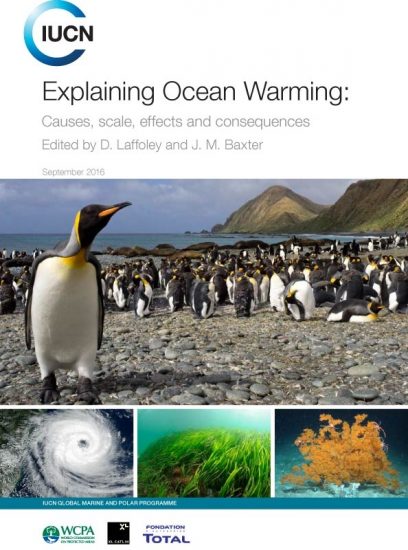


Drastic changes within the marine environment
Since the 1970s, the oceans have absorbed more than 93 percent of the
enhanced heating caused by climate change, and this has led to drastic
changes within the marine environment.
This was the conclusion of a new report compiled by 80 scientists from
12 countries, and presented at the International Union for Conservation
of Nature (IUCN) World Conservation Congress in Hawaii.
Entitled Exploring Ocean Warming, the report covered the major marine
ecosystems, all the way to the deep oceans. It recorded evidence
showing changes in the behaviour and distribution of marine plants and
animals.
For instance, jellyfish, seabirds and plankton have been moving towards
the cooler poles by up to 10 degrees latitude, in response to the
higher temperatures.
Coral reefs worldwide have been dying at an
unprecedented rate, adversely affecting those fish species that use
such structures as a home.
The increased temperatures have also enabled microbes to dominate more
areas in the ocean, leading to higher instances of disease in marine
plants and animals.
Humans are not spared either.
Pathogens like cholera-bearing bacteria
and toxic algal blooms spread more easily in warmer waters; they can
cause neurological illness like ciguatera poisoning.
“We are no longer
the casual observers in the room. What we have done is unwittingly put
ourselves in the test tube where the experiment is being undertaken,”
said Dan Laffoley, one of the lead authors of the report.
In response to the report, Carl Gustaf Lundin, Director of IUCN's
Global Marine and Polar Programme reiterated the need to reduce
greenhouse gases. He said, “There is no doubt in all our minds that we
are the cause of this. We know what the solutions are. We need to get
on with it.”
See here for further information
Link to the report
 Mares
Mares 9th September 2016
9th September 2016